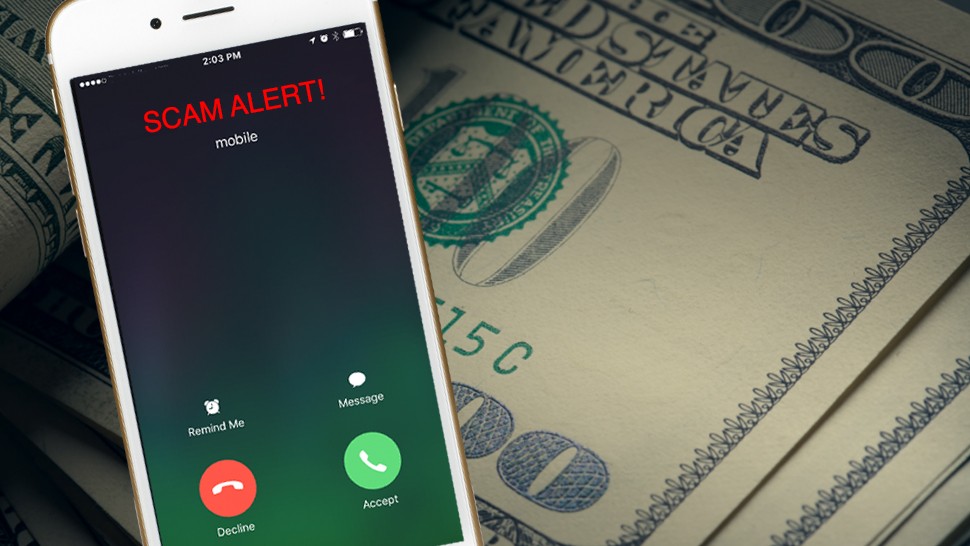Some people in the world are not nice and they are out to rip you off. As the owner of California
Computer Rescue, I received several calls this week about a scam that preys on older, less tech-savvy people. The phone will ring. A person with a heavy accent may tell you he is from Microsoft, Windows, Dell, HP, etc. and that your PC has been sending out alerts that it is having troubles or has numerous viruses. “Your PC is sending us alerts,” he would say. “We can protect you from hackers and others out to steal your identity or delete your data on your PC,” he would continue, “but first we need remotely access to your PC.”
WHOA! Time out! Access my PC? Really? He continues, “You want to be protected from hackers, don’t you?” The difficult-to-understand voice on the other end of the phone will guide you through a few commands
on your PC and voila! Up will come some standard-looking Windows screens that will show errors on the PC. These scammers prey on people with a lack of computer knowledge. One of my customers gave the man on the phone access to his computer and paid him an annual subscription fee of $275.00 for 2 years’ worth of ‘protection’. This reminds me of the old movies where the mobsters would offer to “protect” you from the real ‘bad guys’. Along with taking over your PC to ‘protect’ you they can lower the security levels within the PC to allow other ‘protectors’ to come in un knowingly and steal your personal data.
So how do you protect yourself?
First, never respond to these types of cold calls. Don’t fall for this SCAM, hang up the phone. Some websites report 1 out of 7 people are caught in this web-based scam, with some being billed for over $800.00! Second, have good quality antivirus software; if you are a regular reader of this column, you know I don’t support free antivirus programs. I don’t believe they offer the same level of protection a paid antivirus suite offers Third, neither Microsoft, nor any of the other computer manufactures are going to call you with concerns about your computer and offer to fix it for a subscription fee. If you have concerns about the level of antivirus protection or security on your PC or wireless network, please call a good PC repair shop. The malware (malicious software) market just keeps growing. Trending now, there is malware that locks your PC and displays a warning from the FBI demanding money to unlock your PC. Another one shows up in your PC and pretends to be legitimate anti-virus software wanting you to pay $39.99 or more to remove the hundreds or even thousands of viruses it claims to have found on your PC. Extortion is also big this month. A new piece of malware was recently discovered: when people visit adult sites on the web, a virus attacks their PC. The virus causes a pop-up message to be displayed on your PC threatening to send out a list of the ‘adult’ sites you’ve visited to everyone in your email contacts unless you pay someone money.
All of these scams have one thing in common. They are not legitimate. Whether by phone, email or a
message that pops up on your computer screen, they are bogus. And, they can be generally be avoided by following these simple rules:
- Never click on a link or an attachment in your email that you are not positive is from a trusted person.
Scan it first! - Be careful with USB thumb drives. If a friend gives you one with some files on it, scan the drive before
opening files on it. - Beware of internet pop-ups! Some of these pop-ups look like real information from your PC. They may
say there are lots of viruses or problems with the PC. Remember, they will normally show up only when
using a web browser and are not legitimate. - Use a firewall on your PC. If you don’t have a paid for antivirus suite that has one, make sure the
Windows firewall is turned on. - Set up Windows to automatically download and install patches. Remember an un-patched PC
becomes a target for hackers. - If you come to a problem, search for an answer online. Use Google, or Bing and see what other people
are saying. When searching put the word ‘scam’ to weed out the people who might be targeting your PC
with that specific scam. - Make sure your wireless network is secure. An open/unsecure wireless network is like a plate of fresh
cookies left out on the counter in a home full of hungry kids. There will soon be an empty plate. Protect
your network, your PC and your files. - Backup. I know, I say it all the time. Backup, backup, backup. If disaster does strike, having a good
backup will save all those pictures of your trip to London and your Beatles music collection.
Long ago when you bought your first PC, you probably started asking friends and relatives for help with
your PC problems. These people might know more than you, but maybe not. For example, if I wanted to
make a fancy dinner for my new bride, would I ask the advice of my auto mechanic or a chef?
Remember taking the time now to prepare yourself for the “phone call” you will get. Is time well spent.
